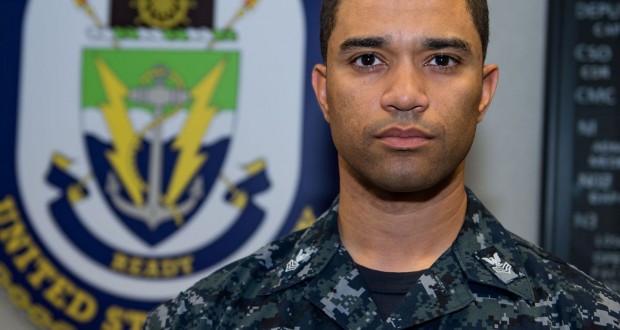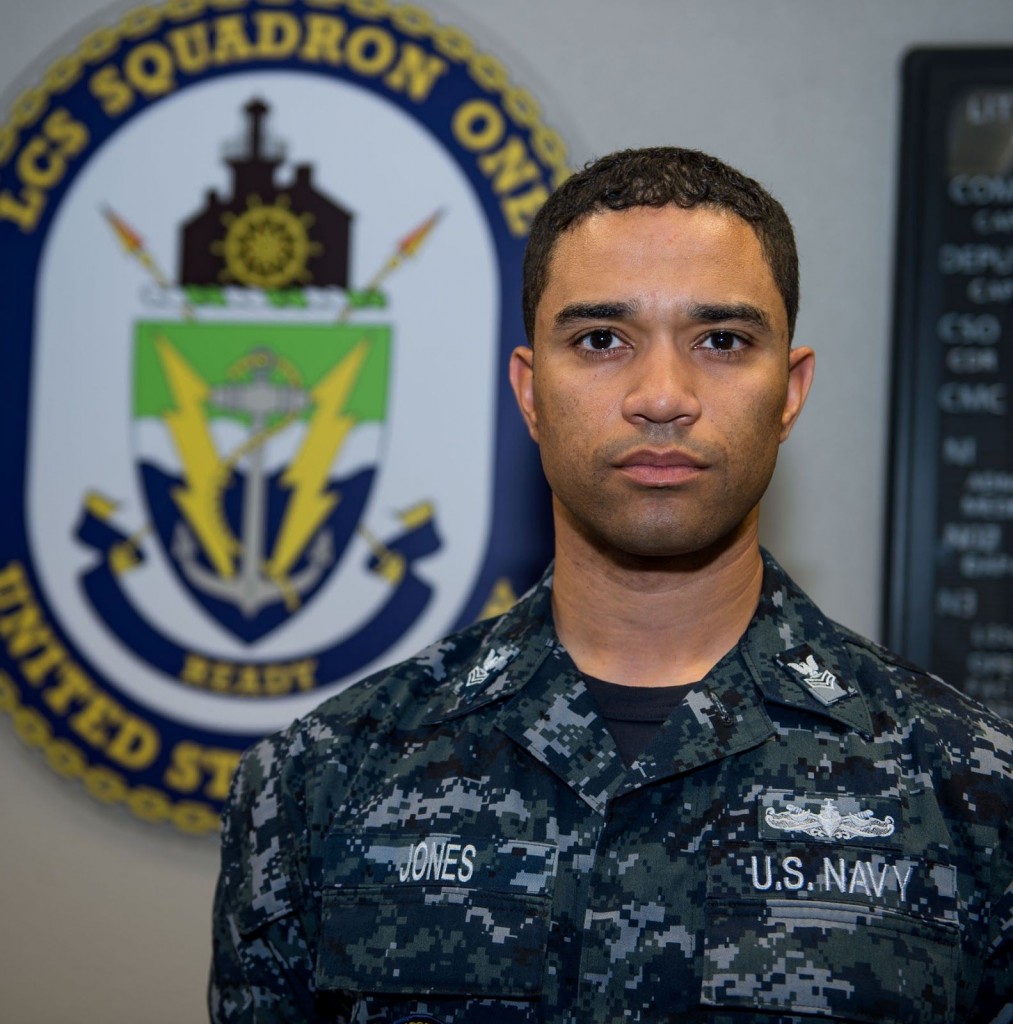SAN DIEGO – A 1998 Pacific High School graduate and San Bernardino, California native is serving in the U.S. Navy as part of a team supporting one of the country’s most versatile combat ships.
Petty Officer 1st Class Clarence Jones is a gunner’s mate and a member of Commander, LCS Squadron One which supports both variants of littoral combat ships based in San Diego.
As a Navy gunner’s mate he is part of a training team for littoral combat squadron, specializing in training Navy boarding teams and weapons systems aboard ships.
“Even though I’m shore duty, it still gives me an opportunity to go out to the field and train crews of LCS ships,” said Jones. “I enjoy training others to do their job effectively for when they go out to the fleet.”
The LCS platform has a unique manning concept called “3-2-1,” where three crews serve aboard two different littoral combat ships, one of which is deployed. This innovative manning concept allows the LCS to spend more time forward deployed without overtaxing the crew, according to Navy officials.
Designed to defeat threats such as mines, quiet diesel submarines and fast surface craft, littoral combat ships are a bold departure from traditional Navy shipbuilding programs. The LCS sustainment strategy was developed to take into account the unique design and manning of LCS and its associated mission modules.
“I have a pretty good chain of command, when stuff needs to get done it will get done,” said Jones. “Leadership looks out for their junior sailors, to where junior sailors look up to their chain of command.”
According to Navy officials, the path to becoming an LCS sailor is a long one. Following an 18-month training pipeline, sailors have to qualify on a simulator that is nearly identical to the ship. This intense and realistic training pipeline allows sailors to execute their roles and responsibilities immediately upon stepping on board.
“Sailors that work aboard this platform are expected to be capable of performing a variety of tasks to assist in the completion of the LCS mission,” said Capt. Warren R Buller, Commander, LCS Squadron One. “The training that is required of our sailors is rigorous and difficult. This ensures that they are mission ready to defend and protect America at all times.”
As a service member supporting the LCS mission, Jones explained they are building a legacy that will last beyond their lifetimes. Sailors know how important it is for the Navy to develop new war fighting capabilities to continue their success on the world’s oceans.
“When I joined the Navy, I came in with the idea to serve my country the best that I can,” added Jones. “When I took the oath, I took every word seriously, and I plan on carrying out the oath until the day I retire.”
Through innovative planning, the design of systems, and crew requirements, the LCS platform allows the fleet to increase forward presence and optimize its personnel, improving the ability of the Navy to be where it matters, when it matters.
 Westside Story Newspaper – Online The News of The Empire – Sharing the Quest for Excellence
Westside Story Newspaper – Online The News of The Empire – Sharing the Quest for Excellence





